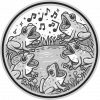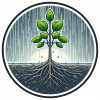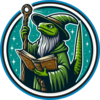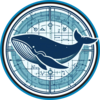Over the past year, I’ve found myself returning again and again to one big question: How can we make conservation tech work where the wild really begins , where the signal drops, the power is limited, and every gram of hardware matters?
That curiosity led me to edge AI and edge computing technologies that bring intelligence closer to the source. Instead of sending data to the cloud and waiting for insights, what if we could process it right there, in real time, on-device? Whether it’s a smart camera trap deep in a rainforest, an underwater drone scanning coral reefs, or a weather station powered by solar panels, edge solutions can make conservation tech faster, smarter, and more resilient.
But as I dug deeper, I realized something: the people working at this intersection :technologists, ecologists, engineers, and field researchers are scattered. Many of us are solving similar problems in isolation: How do we optimize models for low-power devices? How do we manage data transmission in real-time from the field? How do we balance autonomy and connectivity in places with little or no internet?
That’s when I thought: What if we had a space on WILDLABS to bring all of us together?
What I’m Proposing
I’m currently preparing to apply for the 2025–2026 WILDLABS Group Leader Programme, and I’d like to propose a new community group focused on Edge AI and Edge Computing in Conservation.
Before I submit my application, I’d love to gauge the community’s interest. Would you find value in a group like this? Would you join?
Who This Group Is For
This group would welcome anyone working at the intersection of conservation and edge tech, including:
- Conservationists deploying camera traps, drones, audio sensors, or underwater monitoring systems
- Engineers building embedded systems that run AI models on-device
- Researchers exploring TinyML and lightweight neural networks for field use
- Practitioners solving the real-world challenge of transmitting data from the field in near real-time using low-bandwidth, intermittent, or mesh-based networks
- Anyone curious about how to process and transmit environmental data closer to the source
Whether you're trying to get models to run on a microcontroller or figure out how to relay real-time data from a rainforest to a base station, this group is for you.
What This Group Could Offer
Here’s what I imagine we could build together:
- A space to share field-tested tools, datasets, models, and hardware setups
- Knowledge exchange on optimizing ML models for energy, latency, and memory constraints
- Discussions about transmission protocols from LoRa to satellite relays for real-time data delivery from remote sites
- A library of open-source code, deployment templates, and troubleshooting guides
- Workshops on model quantization, device selection, and transmission strategies
- A bridge between conservation goals and edge computing capabilities
- Case studies from successful (and failed!) deployments to accelerate learning
Why Host This on WILDLABS?
You can talk edge tech on Slack, GitHub, or Reddit. But WILDLABS is where conservation and technology intersect with intention. The conversations here are grounded in biodiversity, real-world challenges, and a shared desire to make tech serve nature not the other way around.
That’s why I believe this group belongs here: because we’re not just talking about processors and packets we’re talking about turtles, trees, migration patterns, and survival.
Interested? Let’s Build This Together
If this idea resonates with you, I’d love to hear from you. Please leave a comment or react to this post your feedback will help shape the group’s direction and strengthen my application.
I’m also looking for a potential co-lead, so if you’re already working in this space or would like to help shape the group from day one, feel free to reach out.
Thanks so much for reading and I hope we can bring this group to life together. :)
Youssef BAYOULI
9 June 2025 10:09pm
I think this is a fantastic idea! I'm interested in exploring edge AI to enable adaptive sampling and networked, multi-modal field studies, and I would love to space like this to learn from others working in this area. I would be happy to help co-lead this initiative.
10 June 2025 10:12am
I like the idea, and i will be happy to join the group once established. I hope to invite many of the researchers and AI experts to work with us. currently working on bees and with future plans of working on pangolin. My place has many conservation initiatives going on in the real field but with limited use of technology especially AI.
10 June 2025 3:14pm
Great proposal, Youssef!
As an electronics engineer with experience in ICT and automation, I’m very familiar with the challenges you mention: low connectivity, limited energy, and the need for resilient, real-time solutions.
I’ve worked on the ground, integrating sensors, edge computing, and data analysis in rural areas like Catatumbo. Now, at the Humboldt Institute, I develop platforms for community-based biodiversity monitoring—where edge AI could be a game-changer.
I’d love to join the WILDLABS group to share insights and tackle technical challenges together. Count on my support in distributed systems design, fieldwork, and connectivity for complex environments.
Let’s build this community!

Alex Rood
WILDLABS
World Wide Fund for Nature/ World Wildlife Fund (WWF)
10 June 2025 5:22pm
Thank you for creating this post to gauge interest, Youssef! I'm far from an expert in edge AI/edge computing, so apologies in advance for my questions! I'm dropping them publicly in the comment section here so other folks can chime in :) I'm excited to learn more!
- What do you think the benefit is of having this be its own group instead of couched in with the existing AI for Conservation group? From what little I know, it seems like edge AI could fit nicely into that group, but edge computing feels distinct!
- In the past, the WILDLABS team had discussed the possibility of starting a "Real-Time Monitoring" group, but ultimately decided that the needs of that group would be captured by our AI for Conservation and Connectivity groups. Besides the AI group, are there any other groups on WILDLABS that might cover some of the needs/topics of edge computing? (It's okay if the answer is no!)















Jenna Kline
Imageomics Institute
ABC Global Climate Center